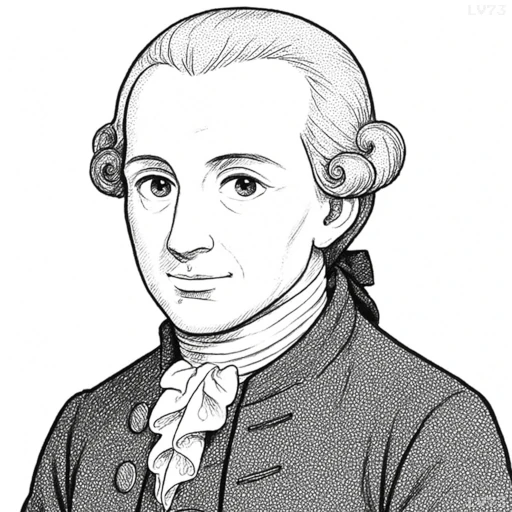“To be is to do.”

- April 22, 1724 – February 12, 1804
- Born in Germany (East Prussia)
- Philosopher
table of contents
Quote
“To be is to do.”
Explanation
In this quote, Immanuel Kant is asserting that existence and action are intrinsically linked. For Kant, the essence of being is not a passive state of existence, but rather it is defined by what one does—by the actions that stem from one’s will and moral choices. This aligns with his broader moral philosophy, where human beings are not merely subjects of experience but active agents who define their own moral worth through their actions. Being is not just about existing in the world; it’s about shaping the world through rational action that adheres to moral laws and contributes to the greater good.
In modern thought, this idea resonates in fields like ethics, personal development, and existential philosophy. The notion that “to be is to do” suggests that personal identity and moral responsibility are defined by choices and actions, rather than by abstract qualities or mere existence. For example, in contemporary psychology, identity is often explored through the lens of self-actualization—the process of becoming the person one aspires to be through actions and decisions. In leadership and management, the quote underscores the importance of authenticity and action-oriented decision-making: what you do is a direct reflection of who you are, especially when it aligns with core values and principles.
Historically, Kant’s statement can be seen as part of his moral philosophy, where the focus is on action as the defining characteristic of human agency. Unlike some ontological perspectives that view being as a fixed state, Kant’s practical philosophy emphasizes the ethical significance of action, suggesting that moral agency—how we act according to rational principles—is the true measure of our existence. This perspective has influenced later philosophical thought, particularly existentialists like Sartre, who similarly believed that existence precedes essence, and that identity is forged through actions rather than innate qualities. Kant’s view, however, grounds this in a rational moral framework, suggesting that our actions are most significant when they align with universal moral laws.
Would you like to share your impressions or related stories about this quote in the comments section?
